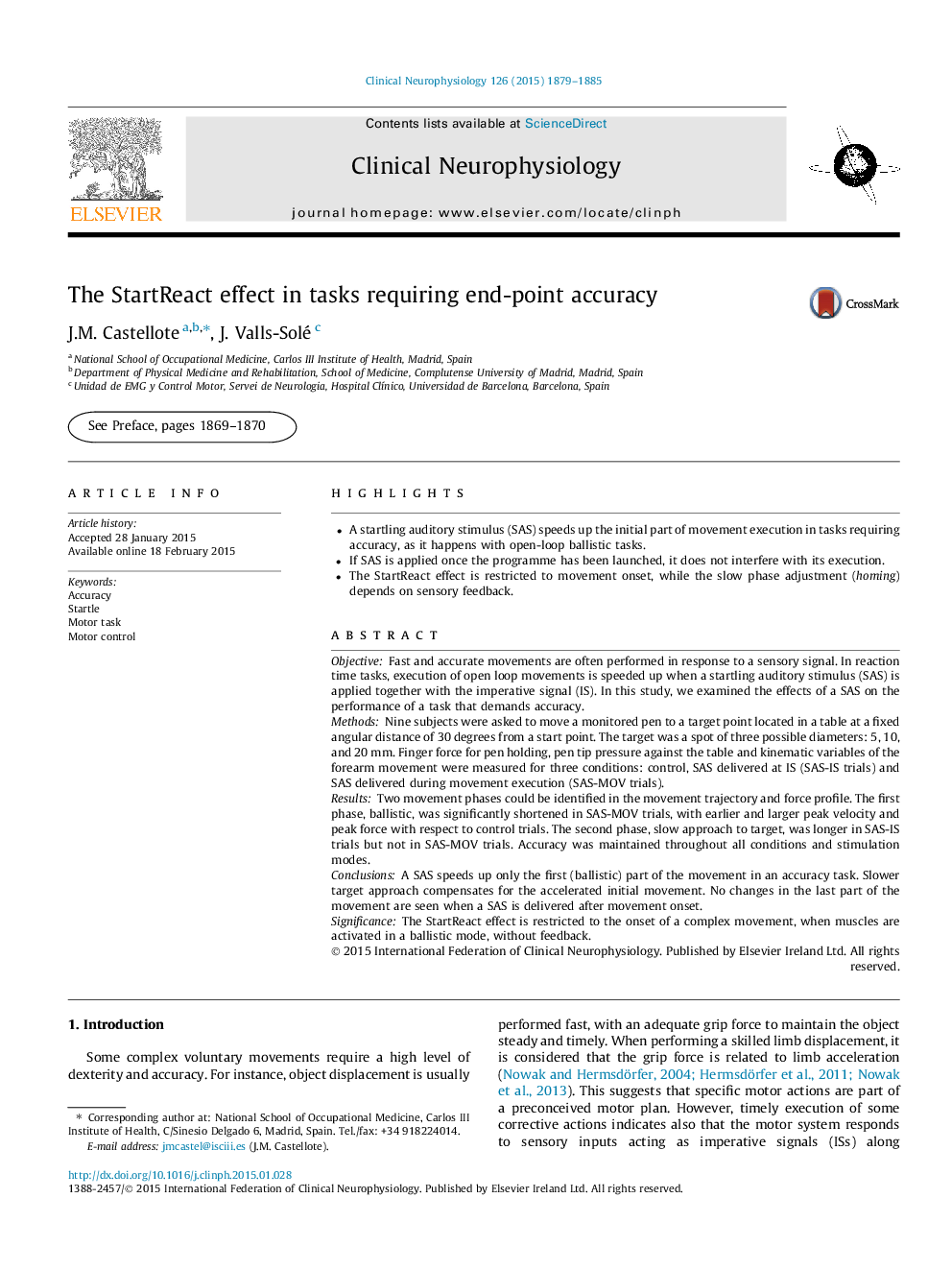| Article ID | Journal | Published Year | Pages | File Type |
|---|---|---|---|---|
| 6008578 | Clinical Neurophysiology | 2015 | 7 Pages |
â¢A startling auditory stimulus (SAS) speeds up the initial part of movement execution in tasks requiring accuracy, as it happens with open-loop ballistic tasks.â¢If SAS is applied once the programme has been launched, it does not interfere with its execution.â¢The StartReact effect is restricted to movement onset, while the slow phase adjustment (homing) depends on sensory feedback.
ObjectiveFast and accurate movements are often performed in response to a sensory signal. In reaction time tasks, execution of open loop movements is speeded up when a startling auditory stimulus (SAS) is applied together with the imperative signal (IS). In this study, we examined the effects of a SAS on the performance of a task that demands accuracy.MethodsNine subjects were asked to move a monitored pen to a target point located in a table at a fixed angular distance of 30 degrees from a start point. The target was a spot of three possible diameters: 5, 10, and 20Â mm. Finger force for pen holding, pen tip pressure against the table and kinematic variables of the forearm movement were measured for three conditions: control, SAS delivered at IS (SAS-IS trials) and SAS delivered during movement execution (SAS-MOV trials).ResultsTwo movement phases could be identified in the movement trajectory and force profile. The first phase, ballistic, was significantly shortened in SAS-MOV trials, with earlier and larger peak velocity and peak force with respect to control trials. The second phase, slow approach to target, was longer in SAS-IS trials but not in SAS-MOV trials. Accuracy was maintained throughout all conditions and stimulation modes.ConclusionsA SAS speeds up only the first (ballistic) part of the movement in an accuracy task. Slower target approach compensates for the accelerated initial movement. No changes in the last part of the movement are seen when a SAS is delivered after movement onset.SignificanceThe StartReact effect is restricted to the onset of a complex movement, when muscles are activated in a ballistic mode, without feedback.
